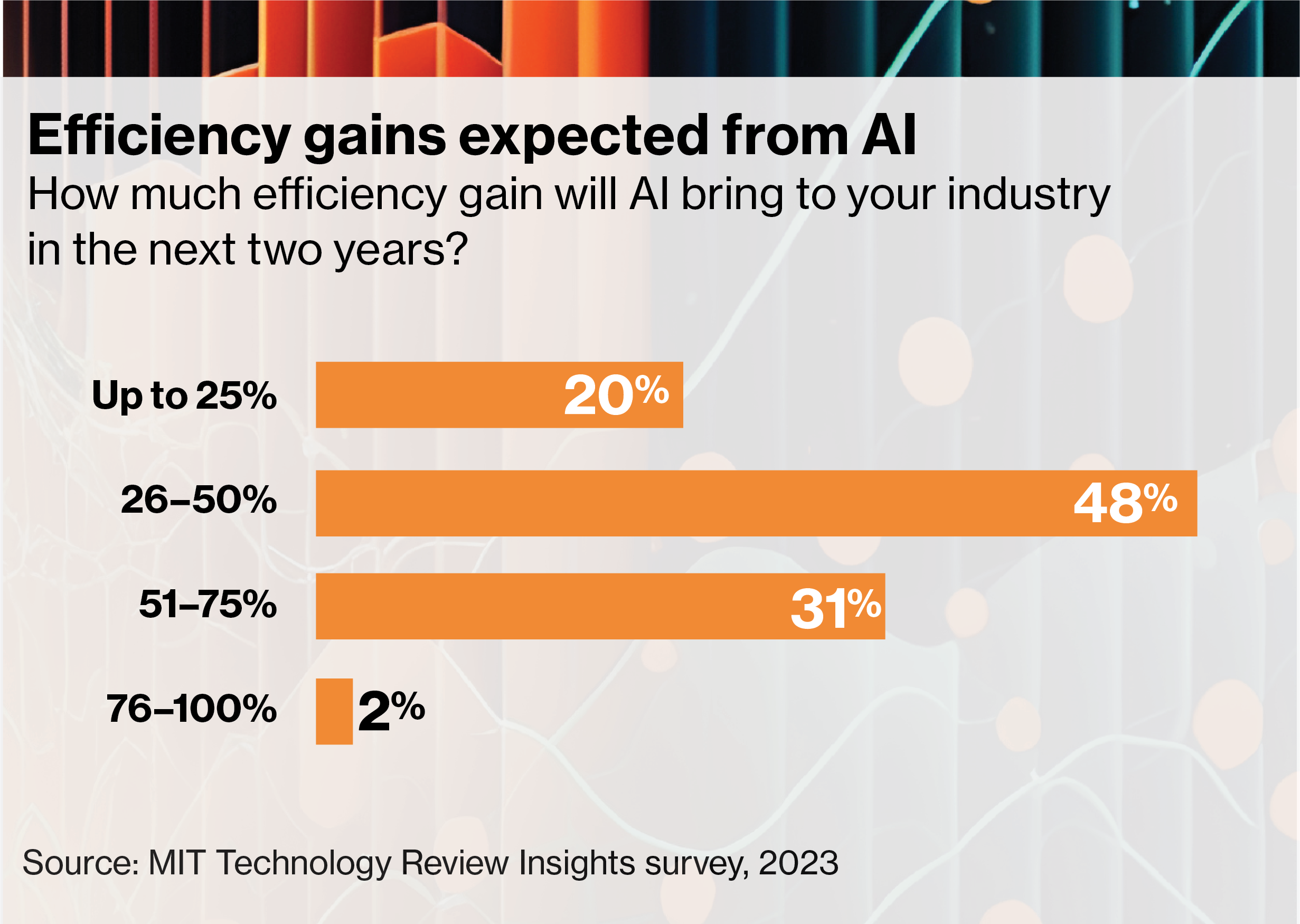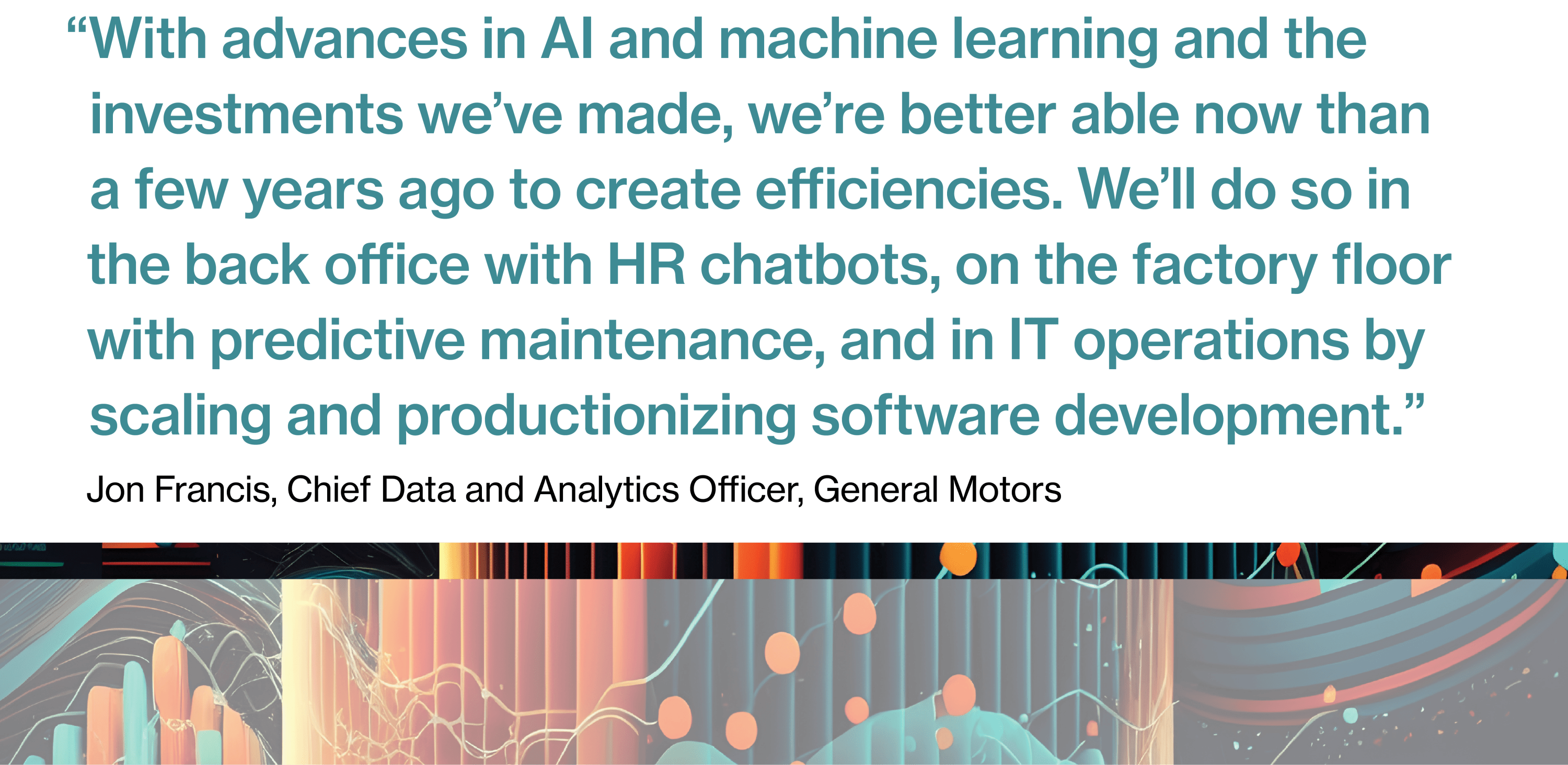Following are the examine’s key findings:
- CIOs are doubling down on their investments in information and AI. Confronted with growing viewers expectations, new aggressive pressures, a difficult financial backdrop, and an unprecedented pace of innovation, know-how leaders want their information and AI belongings to ship extra progress to the enterprise than ever earlier than. They’re investing to safe this future: each group surveyed will enhance its spending on modernizing information infrastructure and adopting AI throughout the subsequent yr, and for almost half (46%), the rise will exceed 25%.
- Consolidation of knowledge and AI methods is a precedence. The proliferation of knowledge and AI methods is especially in depth within the survey’s largest organizations (these with annual income of greater than $10 billion). Amongst these, 81% function 10 or extra of those methods, and 28% use greater than 20. The executives we interviewed purpose to pare down their a number of methods, connecting information from throughout the enterprise in unified platforms to interrupt down silos and allow AI initiatives to scale.
- Democratization of AI raises the stakes for governance. As enterprise items and their employees clamor to make use of generative AI, executives search assurance that governance frameworks for the know-how can present not solely the wanted information accuracy and integrity but in addition satisfactory information privateness and safety. That’s most likely why 60% of respondents say a single governance mannequin for information and AI is “essential.”
- Executives count on AI adoption to be transformative within the quick time period. Eighty p.c of survey respondents count on AI to spice up effectivity of their business by no less than 25% within the subsequent two years. One-third say the achieve shall be no less than 50%.

- As generative AI spreads, versatile approaches are favored. Eighty-eight p.c of organizations are utilizing generative AI, with one-quarter (26%) investing in and adopting it and one other 62% experimenting with it. The bulk (58%) are taking a hybrid method to creating these capabilities, utilizing distributors’ giant language fashions (LLMs) for some use instances and constructing their very own fashions when IP possession, privateness, safety, and accuracy necessities are tighter.
- Lakehouse has grow to be the info structure of selection for the period of generative AI. Practically three-quarters of surveyed organizations have adopted a lakehouse structure, and virtually all the relaxation count on to take action within the subsequent three years. Survey respondents say they want their information structure to assist streaming information workloads for real-time analytics (a functionality deemed “essential” by 72%), straightforward integration of rising applied sciences (66%), and sharing of reside information throughout platforms (64%). Ninety-nine p.c of lakehouse adopters say the structure helps them obtain their information and AI objectives, and 74% say the assistance is “vital.”
- Funding in folks will unlock extra worth from information and AI. In our survey, expertise and abilities gaps overshadow organizations’ different information and AI challenges. When requested the place their firm’s information technique wants to enhance, the biggest share of respondents (39%) say investing in expertise. The number-one problem they face with their information and AI platforms, with 40% citing this as a prime concern, is coaching and upskilling employees to make use of them.
A subsequent report will study these survey leads to element, accompanied by insights from further government interviews throughout six sectors: monetary providers, well being care and life sciences, retail and client packaged items, manufacturing, media and leisure, and authorities.
This content material was produced by Insights, the customized content material arm of MIT Expertise Assessment. It was not written by MIT Expertise Assessment’s editorial employees.

